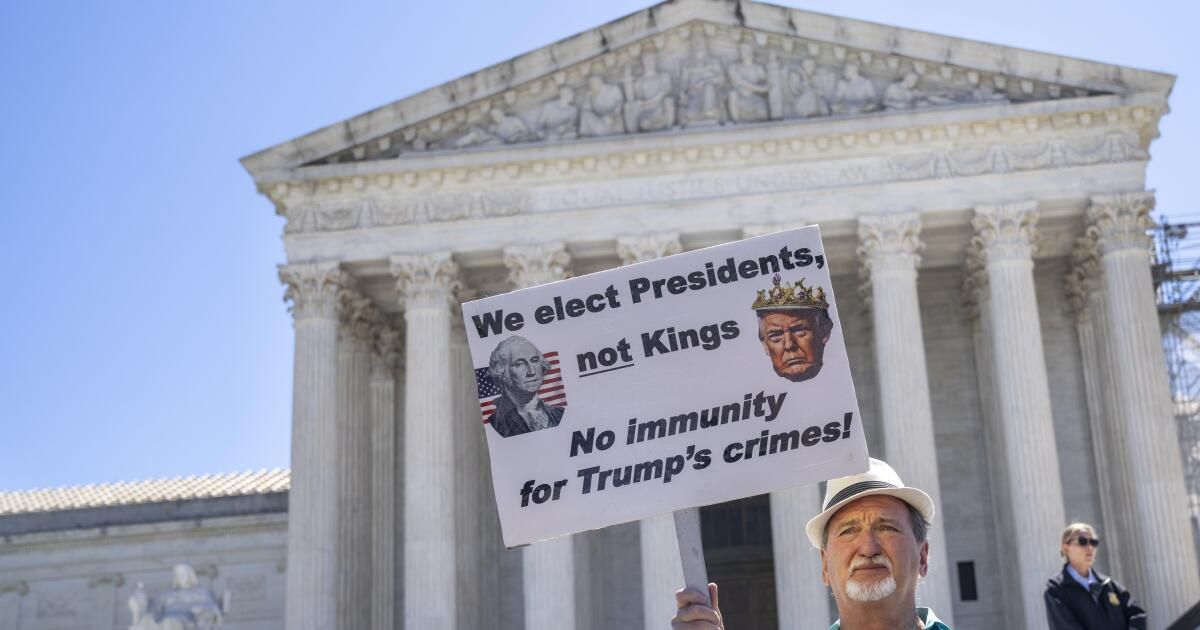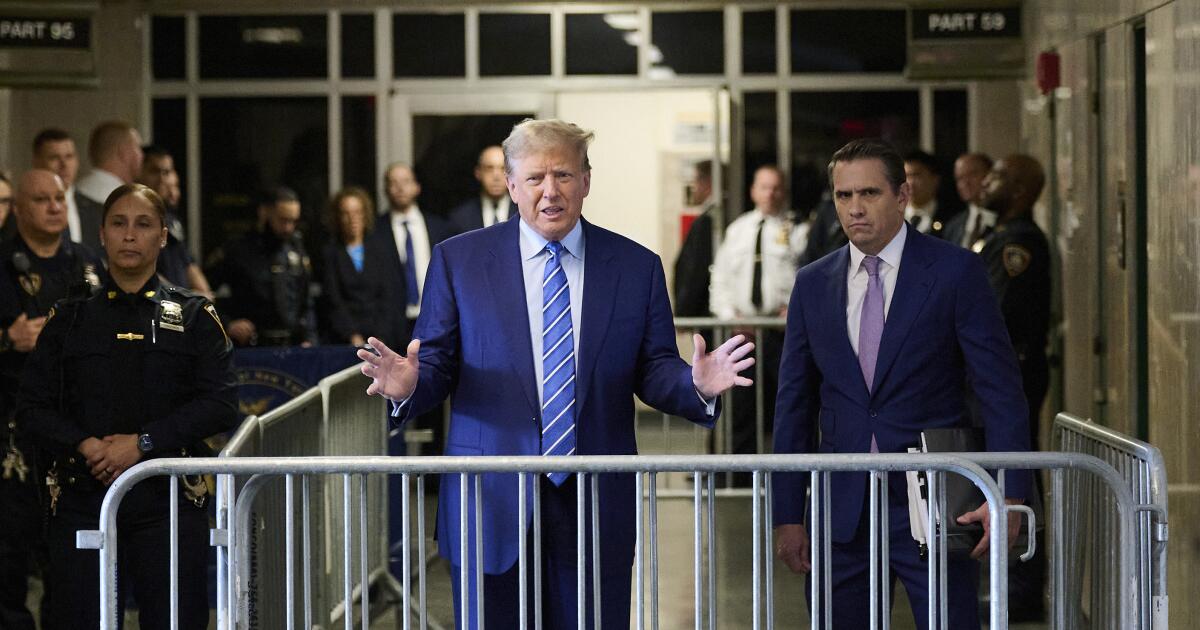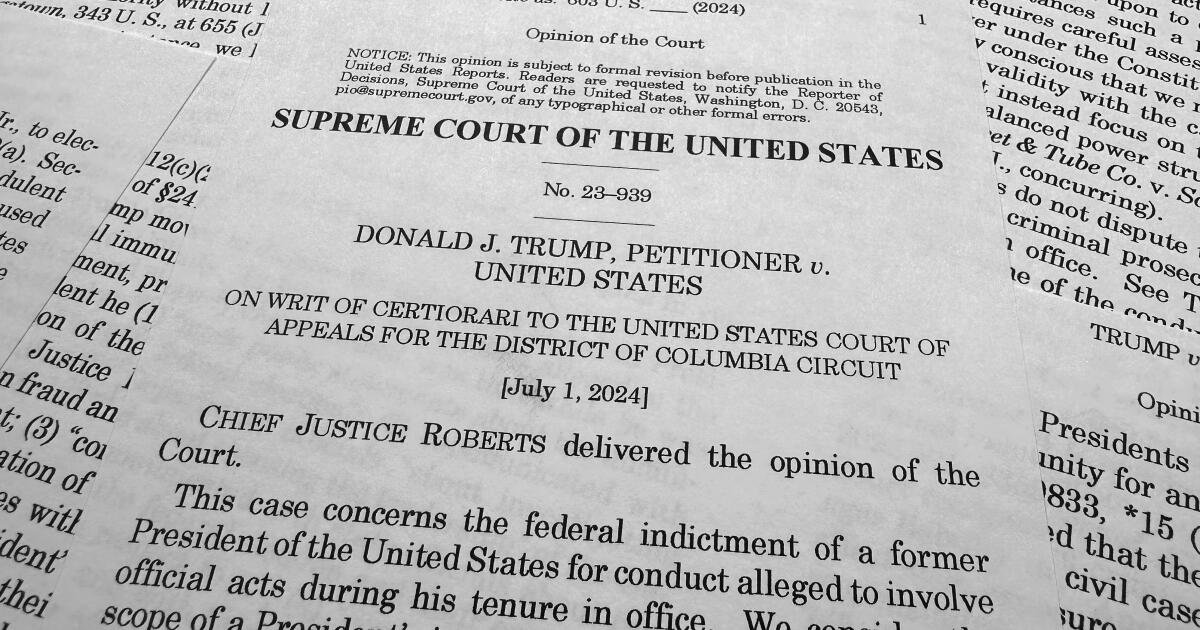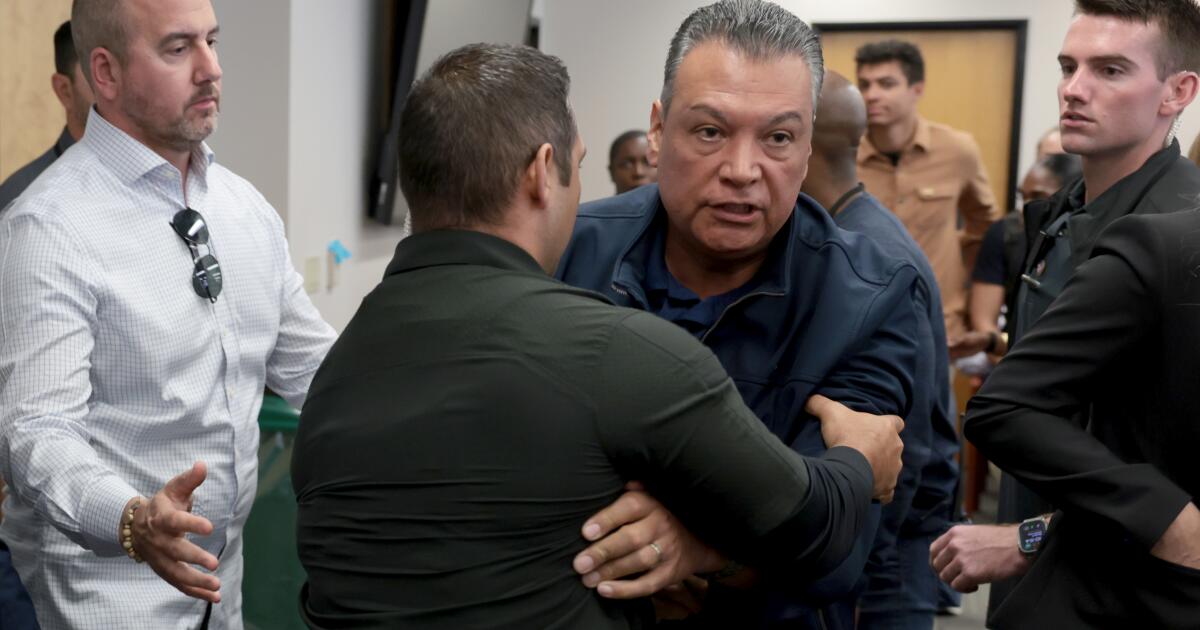Like a compulsive gambler, the United States continues to raise the stakes on decisions made by inherently fallible human beings. When, inevitably, those human beings make bad decisions that bring calamitous results, we criticize those decisions and assign blame, but we are much less likely to question the wisdom of granting so much power to individuals in the first place.
We should. Our nation's founders had no illusions about the possibility of avoiding bad decisions. Instead, sought to limit the power of individuals and the resulting harm.
In July, the Supreme Court held that presidents are absolutely immune from crimes they might commit using many of their official powers, and are at least presumptively immune from criminal prosecution for any official action. Many have criticized the court for daring to rewrite the Constitution: the founders created constitutional immunity for members of Congress for what they say in speeches and debates in the House and Senate, but declined to go further and offer the same immunity to presidents.
Arguably the biggest flaw in the immunity decision is that it is so dependent on a person's wisdom and probity. The Founders rightly considered all human beings, especially those in authority, to be vulnerable to temptation and corruption. While they applauded King William III's leadership in England's Glorious Revolution, they criticized his aggrandizement of power —which later proved dangerous in the unstable hands of King George III. Accordingly, they designed the United States Constitution with many checks and balances on the president.
Today’s president is far more powerful than the one the framers of the Constitution imagined and specifically refused to immunize. The focus on the executive and the executive branch is, in some ways, to be expected: The founders had no way of foreseeing how large the federal government would become with the country’s growing territory, population, economic complexity, and global ties. But they would surely be horrified nonetheless.
For example, the Constitution explicitly designates the president as the nation’s commander in chief. It would seem that the founders gave great power to that office — until we remember that, initially, the United States did not have a standing military. The founders also explicitly assigned war powers to collective decision-making (Congress), not to an individual (the president). But from the Korean Conflict to Vietnam to the Iraq War and beyond, a timid House and Senate have essentially handed that power over to the White House.
If Madison, Washington, Jefferson, and the others had any idea how much power would accrue to the presidency, they would have increased the checks and balances of the Constitution.
Gun safety is another example of how we continue to raise the stakes on fallible human decisions. In this case, an aggressive Supreme Court and A timid Congress has made it possible for almost anyone to purchase what amounts to weapons of war. Assault rifles radically increase the consequences of bad decisions by gun owners compared to the weapons available when the weapon is in use. Second Amendment was ratified.
Even if the founders intended to convey individual rights to private gun ownership (a historically dubious claim), the Second Amendment certainly does not guarantee the right to own guns. any weapon of one's choice. (As an analogy, consider the Sixth Amendment: it guarantees the criminal defendant the right to some lawyer but not the lawyer of his/her choice).
A person who owns a gun has and carries guns. This is true even if he is denied the gun of his choice. Any plausible 21st century gun safety legislation would allow the possession of weapons far more lethal than those used in everyday life. acquaintance The framers of the Second Amendment have sided with the Supreme Court, but the court continues to raise the stakes. One result was that in late August, a federal district court judge felt compelled by recent Supreme Court decisions to dismiss charges against a man who owned a machine gun, which has been illegal since 1934. Fallible humans with machine guns are far more terrifying than fallible humans with flintlock rifles.
Persistent Liberal calls Eliminating the filibuster in the Senate—allowing the party that wins an election to reform government without compromise—is another example of recklessly raising the stakes for human decision-making. The filibuster is not in the Constitution, but since the Senate’s first session in 1789, the minority has been able to stand in the way of the majority and force compromise through Congress. Advocates of ending the filibuster imagine they could do great things if they were freed from the need for bipartisanship that compels the filibuster, but just as surely, generations of progress on civil rights, environmental protection, and workplace safety could be wiped out after a single round of elections.
Finally, as we have concentrated power in the White House, we have raised the stakes in presidential elections, with the result that cruelty in election campaigns and vote certification is increasing. Objectively, electing the wrong president has become ever more dangerous, and that unleashes subjective passions, along with outrageous and illegal partisan behavior (up to and including the January 6 insurrection), which the perpetrators justify because they are trying to prevent the “catastrophe” of a victory for their opponent.
Inevitably, human beings will make bad decisions. We must do what we can to stop or reverse laws and practices that concentrate power, especially over matters of life and death or crucial rights, in an imperfect individual or a few. We can reduce the risks, require Congress to do its job rather than cede more power to the executive, and strengthen checks and balances. The founders were right about many things, but especially that human beings are fallible.
David A. Super teaches at Georgetown Law School.











